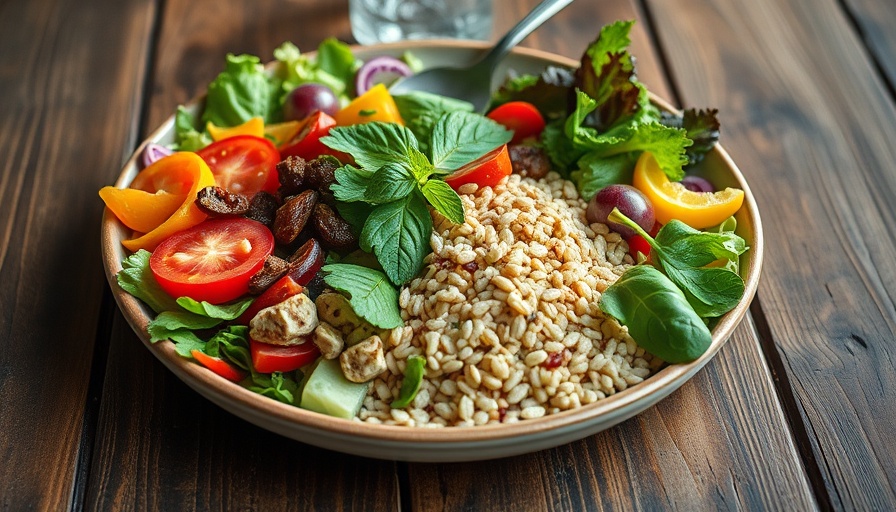
Understanding the Diabetes Epidemic: A Growing Concern
Diabetes is more than just a medical condition; it has become a global health crisis that touches millions of lives. The staggering statistics from the International Diabetes Federation (IDF) reveal that approximately 537 million adults were living with diabetes in 2021. By 2030, this number is expected to grow to 643 million, with projections of 783 million by 2045. This alarming increase spans all continents, highlighting the urgent need for effective prevention and management strategies.
The Role of Processed Foods in Diabetes Development
A significant factor contributing to the rising cases of diabetes is the growing consumption of processed and ultra-processed foods (UPFs). These are food products that are not only convenient but also designed to be tasty and appealing, often using a mix of preservatives, artificial flavors, and sweeteners. With their prevalence in grocery stores, it's easy to see why UPFs can make up over 50% of caloric intake in developed nations like the United States and the UK.
What Are Ultra-Processed Foods?
Ultra-processed foods are a category defined by the NOVA classification system, developed by Brazilian researchers in 2009. This system categorizes foods based on their level of processing:
- Unprocessed or Minimally Processed Foods: These consist of natural foods that have been altered only slightly. They include fresh fruits, vegetables, grains, and nuts.
- Processed Culinary Ingredients: Extracted from Group 1 foods, these are used for cooking and seasoning.
- Processed Foods: Foods that have been preserved or altered but still retain significant nutritional value.
- Ultra-Processed Foods: Highly modified food substances that include additives to enhance flavor, coloring, and preservation.
Why Sticking to Whole Foods Matters
Understanding the differences in food processing is crucial for making informed dietary decisions. While whole foods can provide essential nutrients without added sugars or unhealthy fats, ultra-processed foods often lack the same nutritional benefits. Regular consumption of UPFs has been linked to weight gain, poorer metabolic health, and increased risk of diabetes.
The Health Risks of Ultra-Processed Foods
Health experts are raising alarms about the implications of a diet rich in ultra-processed foods. Research suggests that these food items can interfere with metabolic processes, leading to insulin resistance—a significant precursor to type 2 diabetes. The problem is compounded by the fact that UPFs are often marketed aggressively, obscuring their potential health risks.
Making Healthier Food Choices
So, how can we combat the rise of diabetes linked to processed foods? Awareness is the first step. By understanding what's in our food and choosing less processed options, we can significantly enhance our nutritional intake. Here are some practical tips:
- Choose Whole Foods: Fill your plate with fresh fruits, vegetables, whole grains, and lean proteins.
- Read Labels: Look for added sugars, unhealthy fats, and artificial ingredients on packaging.
- Cook at Home: Preparing meals from scratch allows for better control of ingredients and health outcomes.
Conclusion: Empowering Choices for Better Health
Understanding the connection between processed foods and diabetes is crucial for protecting our health and well-being. The choices we make today regarding our diet can have profound effects on our future health. By prioritizing whole foods over ultra-processed options, we not only reduce our risk of diabetes but also invest in a healthier lifestyle overall. Embracing this knowledge empowers us to make better choices that can lead to improved health outcomes.
 Add Row
Add Row  Add
Add 




Write A Comment